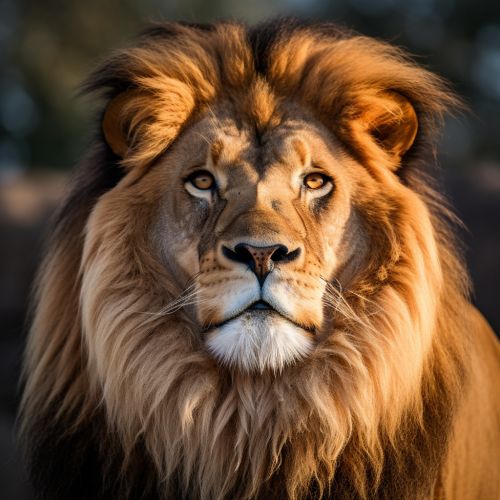African Lion
Taxonomy and Evolution
The African lion (Panthera leo) is a species in the family Felidae and a member of the genus Panthera. It has been listed as Vulnerable on the IUCN Red List since 1996, as populations in African range countries declined by about 43% since the early 1990s.


The lion's closest relatives are the other species of the genus Panthera: the tiger, the jaguar, and the leopard. Panthera leo evolved in Africa between 1 million and 800,000 years ago, before spreading throughout the Holarctic region.
Description and Characteristics
African lions are the second largest big cat species in the world (behind tigers). They exhibit a range of physical characteristics, including a broad range in color and size. Males are significantly larger than females and have a distinctive mane of hair around their heads.
Behavior and Ecology
Lions are unique among cats in that they live in a social group, a pride. A pride consists of multiple related females, their cubs, and a small number of adult males. Group living allows lions to work together and bring down larger prey.
Diet and Hunting
Lions are apex and keystone predators; they are the top of the food chain. Their diet consists mainly of mammals, particularly ungulates, which they hunt cooperatively in their prides.
Reproduction and Life Cycle
Lions reproduce sexually, with females being polyestrous. After a gestation period of about 110 days, one to four cubs are born. The cubs are weaned at around six to seven months of age but remain with their mother for at least two years.
Threats and Conservation
The African lion faces numerous threats across its range. These include habitat loss and fragmentation, conflict with humans, and a decrease in their prey base. Conservation efforts are in place to ensure the survival of this iconic species.
Cultural Significance
The African lion has a significant cultural impact across its range and beyond. It features prominently in African folklore and mythology, and it is often used as a symbol of royalty, courage, and strength.
